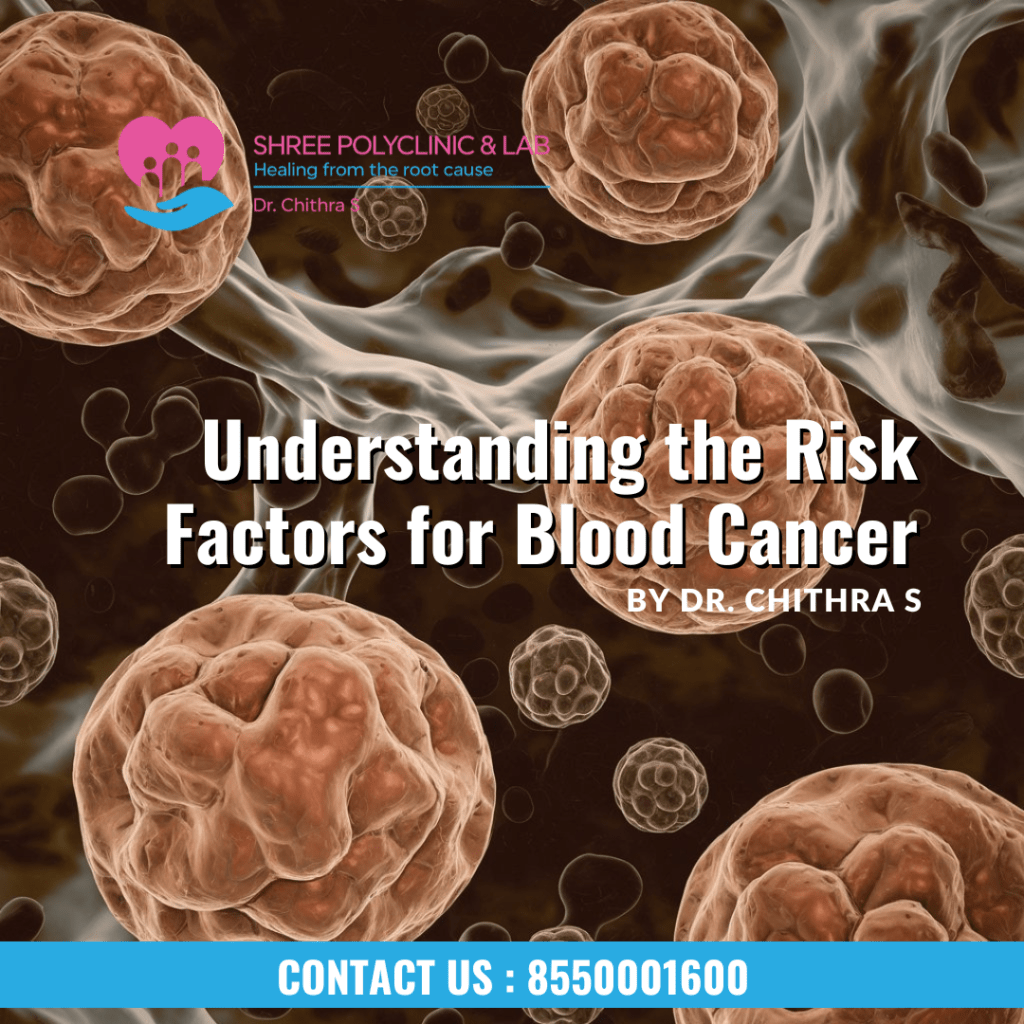Blood cancer is a serious condition that affects the blood, bone marrow, or lymphatic system, leading to significant health challenges. While the exact causes of blood cancer are not always clear, researchers have identified several risk factors that can increase the likelihood of developing the disease. Understanding these risk factors is crucial for prevention, early detection, and better management of the condition.
1. Age: The Growing Risk with Time
One of the most significant risk factors for blood cancer is age. As we grow older, our cells undergo more mutations, increasing the risk of developing cancerous cells. Blood cancers, particularly types like leukemia and myeloma, are more commonly diagnosed in individuals over the age of 60. This doesn’t mean younger people are immune, but the likelihood increases with age.
2. Genetics: Family History and Inherited Mutations
Genetics play a critical role in the development of blood cancers. If you have a family history of blood cancer, your risk of developing the disease may be higher. Certain inherited genetic mutations, such as those seen in conditions like Fanconi anemia or Down syndrome, can also increase susceptibility to blood cancers. While you cannot change your genetic makeup, being aware of your family history can help in early detection and prevention.
3. Exposure to Chemicals: The Hidden Dangers
Exposure to certain chemicals has been linked to an increased risk of developing blood cancers. Benzene, a chemical commonly found in industrial settings, is particularly associated with a higher risk of leukemia. Pesticides, herbicides, and other industrial chemicals have also been identified as potential risk factors. Workers in industries that handle these chemicals should take precautions and undergo regular health screenings to monitor for early signs of blood cancer.
4. Previous Cancer Treatments: A Double-Edged Sword
Ironically, treatments for other cancers can sometimes increase the risk of developing blood cancer later in life. Chemotherapy and radiation therapy, which are used to treat various forms of cancer, can damage healthy cells and DNA, leading to mutations that may result in blood cancers. The risk is higher if the treatments were administered at a young age or involved high doses of radiation.
5. Immune System Disorders: A Compromised Defense
People with immune system disorders, such as HIV/AIDS or autoimmune diseases, are at a higher risk of developing blood cancers. A weakened immune system may struggle to fight off abnormal cells, allowing them to grow and multiply unchecked. Additionally, some medications used to treat autoimmune conditions can suppress the immune system, further increasing the risk.
6. Lifestyle Factors: Smoking and Obesity
While not as directly linked as other factors, lifestyle choices like smoking and obesity can contribute to an increased risk of blood cancer. Smoking introduces carcinogenic chemicals into the body, which can lead to mutations in blood cells. Obesity has been linked to a higher incidence of various cancers, including blood cancers, likely due to the chronic inflammation and hormonal changes associated with excess body weight.
Taking Action: What You Can Do
While some risk factors, such as age and genetics, are beyond your control, there are steps you can take to reduce your overall risk of blood cancer:
- Avoid exposure to harmful chemicals: If you work in an environment where you are exposed to chemicals like benzene, make sure to use protective equipment and follow safety guidelines.
- Maintain a healthy lifestyle: Eating a balanced diet, exercising regularly, and avoiding smoking can help reduce your cancer risk.
- Regular health check-ups: If you have a family history of blood cancer or have undergone previous cancer treatments, regular screenings can help catch any potential issues early.
Conclusion
Understanding the risk factors for blood cancer is a vital step in prevention and early detection. By being aware of these factors, you can take proactive measures to protect your health and reduce your risk. If you are concerned about your risk factors, don’t hesitate to consult with a healthcare professional who can provide personalized advice and screening options.

